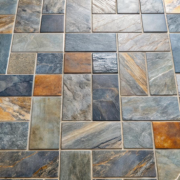With the topic of A-Level and GCSE results very relevant, it’s always a good opportunity to consider what comes after results day. While many still opt for the university route, the numbers of those going into trades such as plumbing, electrician or carpentry have been on the rise for several years now.
The great thing about learning a trade is that you can generally start earning money quicker than those who choose to go to uni, and there are often routes which mean you avoid student debt too.
If you’ve been considering learning a trade, we’ve written an article to help you understand if plumbing is a viable career option for you, the skills and attributes you need, and some options of how to enter this career path.
Is becoming a Plumber the right career path for you?
What career you go into is an important choice which you should consider carefully. As it’s the way you earn your living, you’ll be spending a number of hours carrying out your job, so it’s important to find something you’ll enjoy and find fulfilling. Therefore the following section gives some insight on what you’d do as a plumber day-to-day, and what sort of personality and attributes you might have that could help you excel at a career in plumbing.
What does a plumber do?
Here are a few of the tasks you can expect day-to-day as a plumber:
- Travelling to homes and businesses to assess and repair plumbing and drainage issues
- Diagnose and installing pipes and other drainage fixtures
- There may be call out in non-standard hours to fix an emergency plumbing issues
- Carrying out testing on plumbing appliances
- CCTV drain surveys for those looking to purchase homes
- Drain unblocking
What skills and attributes should a plumber have?
- In terms of school exams, a well rounded foundation across a variety of subjects is optimum
- You’ll want to have good coordination and be dextrous as you’ll be working with your hands a lot, and often in small spaces.
- You’ll want to have good communication skills, as you’ll be talking to customers and giving advice
- You might enjoy problem solving, which will help with diagnostics
- You’ll value safety, and adhering to codes and regulations
How do you train to become a plumber?
Once you’ve decided to embark on a plumbing career path, you can look at the different options on how to qualify and start working as a plumber. Here are some suitable options once you’ve finished your GCSE’s and secondary education::
Vocational Qualification
Although a university education isn’t required to become a plumber, a very popular choice is to take a specific vocational qualification such as an NVQ. These often take place at specific trade or technical colleges or schools.
There are also Fast-Track plumbing courses available which take around 8-10 weeks
Plumbing Apprenticeship
Another option is to look for a plumbing apprenticeship, which allows to complete on-the job training. You’ll spend a large amount of your time shadowing and working alongside a qualified plumber, and you’ll have to do a certain amount of classroom hours (generally done as a “day release”) at a college to gain the qualification. The best part about an apprenticeship is that you can start earning money right away, and may suit those who don’t thrive in a formal education setting.
What Next?
After you’ve completed your training or apprenticeship, you’ll become a fully qualified plumber. From here, you might work for a local plumbing company, or eventually you can even set up your own company.
Plumbing can be a lucrative career path if you’re well suited to the role, have good people skills and you take the time to complete your training. Is it the career for you?













Comments